It’s not uncommon for people with disabilities to confront bias when engaging with healthcare providers and systems. For example, providers might make wrong assumptions about people’s decision-making abilities and their goals for care and treatment. This bias can result in inappropriate care. In this webinar, four panelists will talk about the benefits and the limitations of advance care planning as a more person-centered approach to care. Advance care planning and health care directives are written instructions that tell people who care about you, others, and providers the type of medical care you want in the event that you’re not able to speak for yourself. Our panelists will cover key concepts in healthcare decision making and advance directives. They’ll talk about how these can come into play with regard to culture, faith and spirituality, advocacy and lived experience, and provision of community-based services.
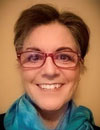
Co-facilitator Leigh Ann Kingsbury is a consultant and gerontologist who has supported people with complex healthcare and disabilities for more than thirty years. She is a Certified Person-Centered Thinking Mentor Trainer, and Board Member Emeritus of The Learning Community for Person Centered Practices. Leigh Ann is the author of AAIDD’s People Planning Ahead: A Guide to Communicating Healthcare and End of Life Wishes and a Respecting Choices Advance Care Planning Facilitator. Currently, she facilitates the Alzheimer’s and Related Dementias Task Force for the state of Ohio.
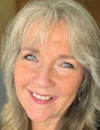
Co-facilitator Mary Beth Lepkowsky leads Helen Sanderson Associates USA, a learning and development consultancy that developed “Living Well,” a person-centered approach to supporting people to live well with a long-term condition and plan for care at the end of life. Mary Beth is a Respecting Choices Advance Care Planning Facilitator, Five Wishes Facilitator, and Mentor Trainer for Person Centered Thinking and Planning and has facilitated advance care planning workshops for families and healthcare providers in California.
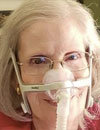
Diane Coleman, J.D., MBA, is the President/CEO of Not Dead Yet, a national disability group she founded in 1996 to organize disability opposition to assisted suicide and euthanasia. Not Dead Yet (NDY) has led in filing friend of the court briefs regarding surrogate decisions, futility policies and assisted suicide, joined by other national disability organizations in several state courts and the U.S. Supreme Court. Coleman has also organized disability rights protests opposing assisted suicide laws and conducted extensive public education activities, including conference presentations, university lectures and media interviews.
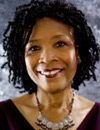
Tawara Goode is an associate professor and Director of the Georgetown University National Center for Cultural Competence and the Georgetown University Center for Excellence in Developmental Disabilities. Both centers are committed to advancing equity and the mission of the NCCC has a specific focus: To increase the capacity of health care and mental health care programs to design, implement, and evaluate culturally and linguistically competent service delivery systems to address growing diversity, persistent disparities, and to promote health and mental health equity.
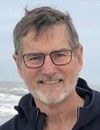
Bill Gaventa is a trainer, and consultant in the arena of faith and disability. He is the founder/Director Emeritus of the Institute of Theology and Disability. His career has included working as a chaplain, Family Support Coordinator for the GA DD Council, faculty at the Boggs Center on Developmental Disabilities in New Jersey, and the President of American Association of Intellectual and Developmental Disabilities, 2016-2017. He is the author of Spirituality and Disability: Recovering Wholeness (Baylor University Press).
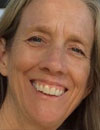
Julie Snyder is a Life Planning Navigator for Tierra del Sol. During her 31 years with Tierra, Julie has been instrumental in delivering person-centered planning to hundreds of individuals with I/DD and their families, throughout all stages of their lives. As a Regional Trainer for The National Task Group and certified trainer in Late Life Planning, Julie’s expertise has not only been essential in helping individuals and families with end-of-life plans but has also aided health care professionals in understanding how to support the needs of individuals with disabilities.
Resources:
NCAPPS is an initiative from the Administration for Community Living and the Centers for Medicare & Medicaid Services to help States, Tribes, and Territories to implement person-centered practices. NCAPPS webinars are open to the public, and are geared toward human services administrators, providers, and people who use long-term services and supports. All NCAPPS webinars will be recorded and archived at https://ncapps.acl.gov.